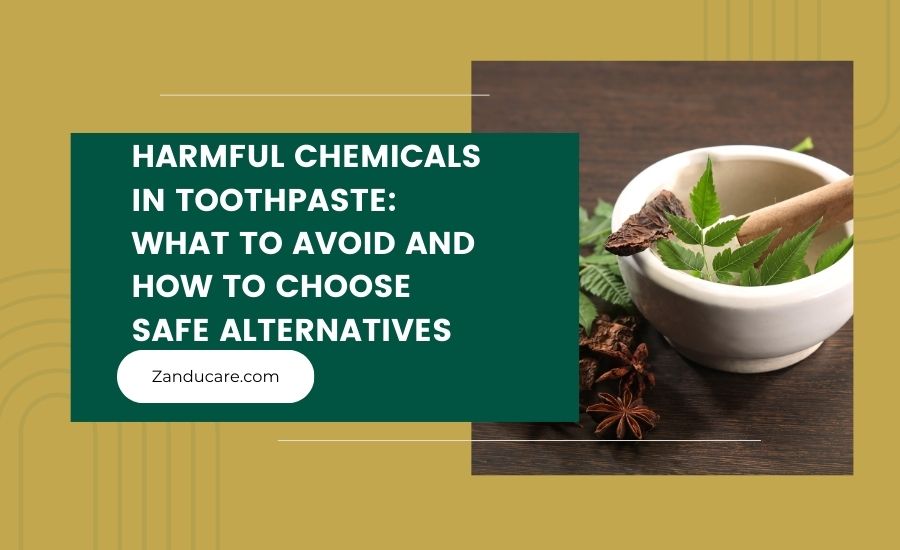
Different Types of Toothpaste : Which One is Right for You?
Toothpaste has become an essential daily need in our current culture. Our parents have instilled in us the value of having healthy teeth since we were young. Because of this, we now brush twice a day as a habit. Hundreds of corporations produce thousands of different types of toothpaste due to our ongoing requirement to brush our teeth.
Choosing a suitable toothpaste is essential to keeping teeth healthy. However, choosing the right toothpaste might be difficult due to the abundance of varieties in the market. Every variety offers advantages, from Ayurvedic and natural solutions to whitening and sensitivity treatments.
The right toothpaste can help keep your gums healthy, lower plaque, and prevent cavities. This post will teach you about the various kinds of toothpaste and how to select the one that best suits your dental hygiene needs. You can make sure your smile is healthier and brighter by choosing the perfect toothpaste.
List of Different Types of Toothpaste
Here are the types of toothpaste available:
Fluoride toothpaste

Keeping teeth strong and healthy requires fluoride toothpaste. The natural mineral fluoride helps strengthen tooth enamel by replenishing lost minerals and strengthening teeth's resistance to decay. However, it functions by fortifying the enamel, the teeth's outer layer of protection, and halting the development of cavities. Fluoride is absorbed into the enamel when you brush your teeth with fluoride toothpaste.
Furthermore, it helps heal mild tooth decay and slows the growth of existing cavities. Fluoride toothpaste is essential to good oral hygiene since it can dramatically lower the incidence of cavities. Because it is beneficial in preserving and safeguarding oral health, dental practitioners suggest using it.
Whitening toothpaste
The most suitable candidates for this type of toothpaste are those who smoke, drink a lot of coffee or tea, or are older and have yellowing teeth. It is made up of an extremely mild abrasive substance that works to clean away dental stains gently. You can get a flawless smile and teeth that are two shades whiter by using whitening toothpaste. Every teeth-whitening toothpaste aims to remove or lessen the look of yellow stains on your teeth. It is made up of cleansers and abrasives.
Sensitivity toothpaste
Sensitive toothpaste is specifically made for people whose teeth are sensitive to heat, cold, or sweet tastes, as the name suggests. Typically, sensitive toothpaste contains chemicals like potassium nitrate or strontium chloride that help desensitise teeth and lessen discomfort. These substances function by covering the exposed dentin—the delicate layer beneath the tooth enamel—with a protective layer or obstructing the nerve terminals in the teeth.
Natural and herbal toothpaste
There are various advantages to using natural and herbal toothpaste for your oral health. Because these toothpaste don't contain harmful ingredients like triclosan, sodium lauryl sulfate (SLS), or artificial sweeteners, there is a lower chance of irritation and unfavourable health outcomes. Common natural ingredients include the antibacterial qualities of neem, the pain-relieving and anti-inflammatory qualities of clove, and the mild antibacterial qualities of mint, which also freshens breath.
Herbs in natural toothpaste can perform equally well as conventional toothpaste. While plant extracts and essential oils support dental hygiene, ingredients like baking soda gently abrade plaque. Because natural toothpaste doesn't include artificial chemicals and ensures clean, healthy teeth, it's often considered a safer and more environmentally friendly option.
Charcoal toothpaste

Activated charcoal, the active ingredient in charcoal toothpaste, attaches itself to plaque and stains on teeth to aid in their removal. The primary advantage of charcoal toothpaste is its whitening properties that give teeth a brighter, cleaner appearance. But there are possible hazards.
Over time, the abrasive properties of charcoal can erode tooth enamel, resulting in heightened sensitivity and an elevated risk of cavities. Although some users claim to have seen whitening, dental professionals advise against using it frequently because it can erode enamel. To ensure charcoal toothpaste is safe for your teeth, use it sparingly and speak with a dentist.
Anti-plaque and tartar control toothpaste
Keeping your teeth healthy requires keeping plaque and tartar under control. If plaque, a sticky layer of germs, is not cleared away, it can solidify into tartar, which can cause gum disease and tooth decay. Tartar management and anti-plaque toothpaste are important components to help fight these problems.
While fluoride and pyrophosphates help keep plaque from turning into tartar and improve enamel, triclosan or zinc citrate inhibits the growth of bacteria. These toothpastes prevent tartar and plaque accumulation, maintaining strong teeth and healthy gums. A thorough oral hygiene regimen must include the regular use of anti-plaque toothpaste.
Children's toothpaste
The flavour and fluoride concentration of children's toothpaste are the main ways it varies from adult toothpaste. To lower the danger of dental fluorosis, a disorder brought on by excessive fluoride consumption during tooth growth, children's toothpaste usually has less fluoride in it. Additionally, it has softer flavours to make brushing more enjoyable for children. It's important to select the best toothpaste for kids' teeth. Since small toddlers might not yet be proficient at spitting out toothpaste, it should be safe to consume.
To prevent cavities, look for toothpaste with xylitol, calcium carbonate, and natural flavours free of artificial colouring or sweeteners. The recommended toothpaste helps shield your child's developing teeth and promotes healthy brushing habits.
Natural vs. Chemical Ingredients in Toothpaste
|
Aspect |
Natural ingredients |
Chemical Ingredients |
|
Source |
Derived from plants, minerals, and other natural sources. |
Synthesised in labs and derived from chemical compounds. |
|
Common Ingredients |
Neem, clove, Miswak, baking soda, essential oils. |
Sodium lauryl sulfate (SLS), triclosan, parabens, fluoride, artificial sweeteners. |
|
Function |
Clean teeth, fight bacteria and freshen your breath using natural methods. |
Clean teeth, fight bacteria, foam creation, and preserve the product. |
|
Safety |
Generally safe with fewer side effects but potential for natural allergies. |
Potential for irritation, allergic reactions, and health risks with long-term use. |
|
Environmental impact |
Biodegradable and eco-friendly, less environmental harm. |
It can cause environmental pollution, especially in water systems. |
|
Effectiveness |
Effective if they contain clinically proven ingredients like fluoride. |
Highly effective with scientifically tested active ingredients. |
|
Taste and Sensation |
Mild, natural flavours and textures, often less foamy. |
Stronger flavours and foaming action due to artificial additives. |
|
Preservation |
Natural preservatives like essential oils. |
Chemical preservatives like parabens to extend shelf life. |
|
Popularity |
Increasing demand due to health and environmental awareness. |
Widely used and trusted for their proven effectiveness. |
Also do check our related post:
Conclusion
In this post, we explored the various types of toothpaste and its ingredients, including fluoride, abrasives, detergents, and humectants, and discussed the differences between natural and chemical ingredients. We highlighted the importance of fluoride in preventing cavities and maintaining strong teeth. It’s essential to consult with a dentist for personalised advice, as they can recommend the best toothpaste based on your specific oral health needs.
Choosing the right toothpaste tailored to your requirements can significantly enhance your oral hygiene routine, ensuring a healthier and brighter smile. So, prioritise your dental health by making informed choices about the products you use.
FAQs
1. What type of toothpaste should I use for sensitive teeth?
Use toothpaste specially formulated for sensitive teeth. These toothpastes contain stannous fluoride and potassium nitrate, which inhibit nerve connections and help lessen tooth sensitivity. Additionally, they shield the tooth surface from heat, cold, and sugary meals and beverages, lessening discomfort. Frequent use helps shield delicate teeth and increase comfort.
2. Is natural toothpaste as effective as regular toothpaste?
When it comes to preventing cavities, natural toothpaste can be just as effective as conventional toothpaste, particularly if it includes important elements like fluoride. Natural toothpaste that supports dental health frequently contains antibacterial and anti-inflammatory components like neem, clove, or baking soda. To make sure your natural toothpaste cleans and protects your teeth, it's crucial to select one with clinically supported advantages.
3. Can children use fluoride toothpaste?
Children can use fluoride toothpaste, but it's crucial to use the recommended dosage as per their age. Use a smear or rice-sized amount for kids under three and a pea-sized amount for three to six. Watch them brush to make sure they don't ingest the toothpaste. Fluoride is good for children's dental health since it strengthens enamel and helps prevent cavities.
4. How often should I use whitening toothpaste?
Use whitening toothpaste as part of your daily oral care routine, typically twice daily. However, because whitening toothpaste can be abrasive, it's important to follow the packaging instructions and consult your dentist. Overuse can lead to enamel erosion and increased tooth sensitivity. Balance it with regular toothpaste if advised by your dentist.
5. What are the benefits of charcoal toothpaste?
Due to its abrasive and detoxifying properties, charcoal toothpaste can help whiten teeth by removing surface stains and absorbing plaque and bacteria. It can also help freshen your breath. However, it's important to use it sparingly, as its abrasiveness can wear down enamel over time. Always consult your dentist before incorporating charcoal toothpaste into your routine.
References:
- Keeping teeth strong and healthy requires fluoride toothpaste(https://www.scielo.br)
- Sensitive toothpaste is specifically made for people whose teeth are sensitive to heat, cold, or sweet tastes(http://www.wjpr.net/)
- Activated charcoal, the active ingredient in charcoal toothpaste, attaches itself to plaque and stains on teeth to aid in their removal(https://www.scielo.br)
- There are various advantages to using natural and herbal toothpaste for your oral health(https://www.researchgate.net)





